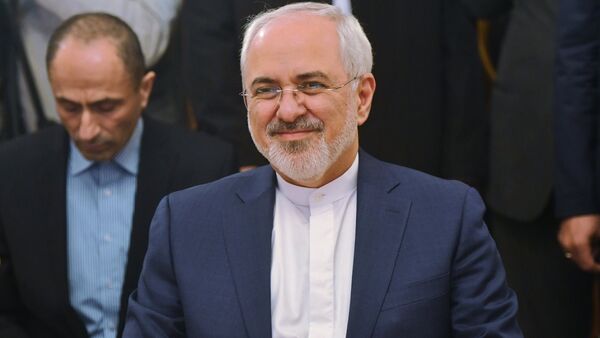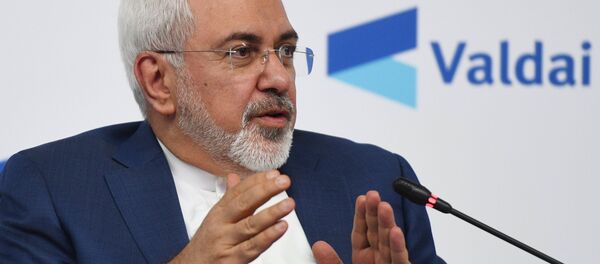Iran says that chances are high that it will receive the necessary trade and banking guarantees from Europe to keep alive the 2015 nuclear accord which the US has withdrawn from and threatens to break up.
Faced with a US threat to punish foreign companies that refuse to join Washington’s sanctions and continue doing business with Iran, the EU has activated the so-called “blocking statute” and has been taking other measures to meet Tehran’s demand for practical guarantees that its economic ties with Europe will not suffer as a result of the US sanctions.
Zarif said that the Europeans “are moving in the right direction,” and that he hoped that most of these measures would be implemented before the arrival of the second round of US sanctions in November.
When asked if Europe would be able to meet that deadline, Zarif said that given the Europeans’ and other countries’ resistance to the re-imposition of US sanctions, Washington’s withdrawal from the 2015 nuclear agreement would fail to bring about a collapse of the landmark accord.
Almost immediately after President Donald Trump announced in May that the United States was walking out of the JCPOA, Germany, France and the UK — all of them also parties to the Iran deal — reaffirmed their firm intention to stay in the agreement.
Russia and China have also repeatedly defended the deal.
READ MORE: US Should Abandon its 'Addiction' to Imposing Sanctions — Zarif
The first wave of US sanctions targeting Iranian exports, the country's financial system and its ability to access the global financial system, took effect at midnight on Tuesday.
A second wave of sanctions targeting Iran’s energy sector is scheduled to come into effect November 4.
The 2015 nuclear deal, also known as the JCPOA, eased sanctions earlier imposed on Iran in exchange for Tehran curtailing its nuclear weapons program.



